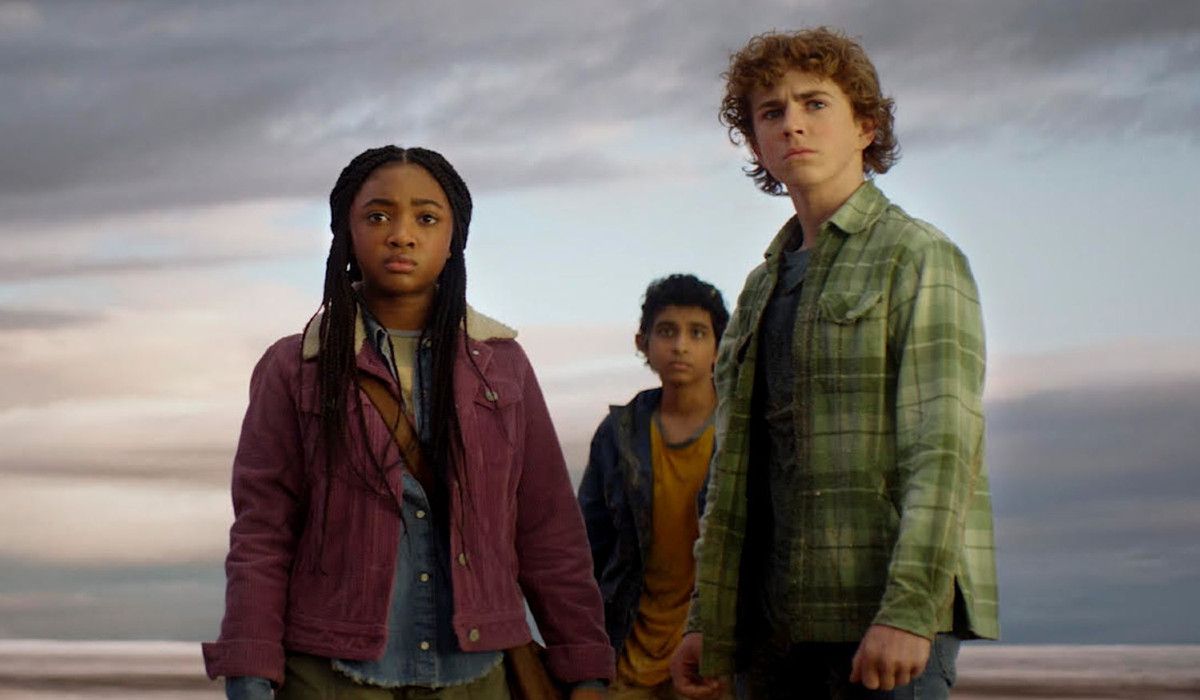‘Percy Jackson and the Olympians’ Reminds Us the Gods Are the Real Monsters

Percy Jackson and the Olympians season 1 is well underway at Disney+. Meanwhile, the changes between the adaptation and the books emphasize that the Greek gods are the real monsters in the story.
In both author Rick Riordan’s pentalogy and the TV show, the gods were always quite nasty. However, the books were told from the perspective of a 12 – 16-year-old boy who couldn’t really be expected to comprehend just how messed up the gods were. Poseidon is still his father, and, like any boy, he’s eager to make him proud, and there’s this romanticization of his father’s relationship with Sally Jackson. Similarly, Athena has a few flaws but is ultimately depicted as sympathetic and helpful to young heroes like her own daughter. Even Thalia’s death is treated as Zeus showing mercy and pity towards his human daughter.
Even though the show is only four episodes deep, it is already taking a more critical and candid stance on the gods. Instead of hyping up how Zeus showed a flicker of emotion over Thalia or how Poseidon called Percy his favorite son one time, the show emphasizes just how little bit the gods do in comparison to their enormous power. It also further delves into how the gods unfairly involve children in their feuds, abuse their power, and are all around just vain, douchy, and self-centered monsters.
Percy Jackson and the Olympians doesn’t sugarcoat the gods
Percy Jackson and the Olympian‘s more critical take on the gods aligns better with actual Greek mythology because the legends leave no doubt that the gods were, indeed, monsters. Medusa, Persephone, Leda, Callisto, Prometheus, Actaeon—these are just a few victims of rape, torture, or murder at the hands of the gods. Of course, given that the Percy Jackson books and show are geared toward younger audiences, it can’t really get too deep into everything the gods did.
Still, episode 3, “We Visit the Garden Gnome Emporium,” references Medusa’s (Jessica Parker Kennedy) true backstory in a departure from the book. It’s done subtly enough to go over younger audiences’ heads, but adult audiences will appreciate the more nuanced depiction of Medusa as a victim of Poseidon and Athena rather than a monster herself. Meanwhile, the latest episode, “I Plunge to My Death,” also departs from the book to take a few jabs at Athena. When Medusa tries to tell her story, Annabeth (Leah Jeffries), daughter of Athena, tries to defend her mother. However, by the next episode, she’s forced to admit that her mother is not the perfect goddess she’d like her to be.
Unlike the book, the show makes the Gateway Arch a temple dedicated to Athena. Athena’s children go there for protection as no monsters can enter. That’s why Annabeth, Percy (Walker Scobell), and Grover (Aryan Simhadri) are stunned when Echidna (Suzanne Cryer) infiltrates the temple. Annabeth realizes that her mother allowed Echidna, the mother of monsters, into the temple to attack her and her friends because she was offended by Percy’s “impertinence” when he mailed the gods Medusa’s head. So, basically, this all-powerful goddess was willing to let her 12-year-old daughter and her friends die in her temple because she was offended.
Unsurprisingly, the internet is ready to throw hands with Athena over her treatment of her daughter. It also seems to be no coincidence that Athena is acting in the same manner towards her daughter as she did towards Medusa.
Just because Athena won the worst parent award in this episode doesn’t mean the other gods are any better. Percy is particularly adept at calling out their flaws, such as questioning how the only thing the mighty god Zeus (Lance Riddick) could supposedly do for his daughter is turn her into a tree or how his own father was ignoring him and his mother after his mother was seemingly killed. Similarly, he remains firm that he is Sally Jackson’s (Virginia Kull) son, not Poseidon’s. She, a mere mortal, was the one who protected and cared for him for years while his powerful father disappeared. Even when Poseidon makes a feeble gesture by claiming him, Percy is disgusted when he realizes his just father is trying to reward him for winning a battle with Clarisse (Dior Goodjohn).
Needless to say, viewers do not care much for the few meager acts of humanity the gods display. The show is even more compelling because it got its actors’ ages right. It’s much more jarring than the books or the previous movie adaptions because you can’t ignore how young these kids are. That little boy doing the floss and doing a bad impression of Athena is the same little boy Zeus would blow out of the sky if he got the chance. That sarcastic, perfectionist girl is the same little girl Athena was willing to let die in her temple.
Percy Jackson and the Olympians isn’t afraid to let viewers know that the gods are monsters because power, authority, and status doesn’t equate to goodness. More often, power is corrupt, and those with less authority and power are the ones who pay the price.
(featured image: Disney+)
Have a tip we should know? tips@themarysue.com